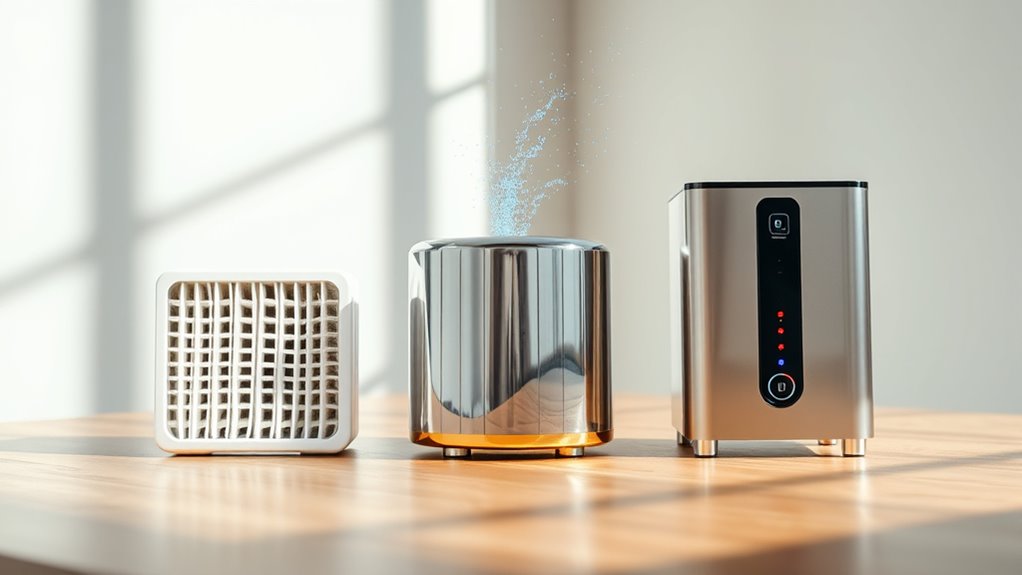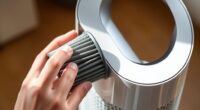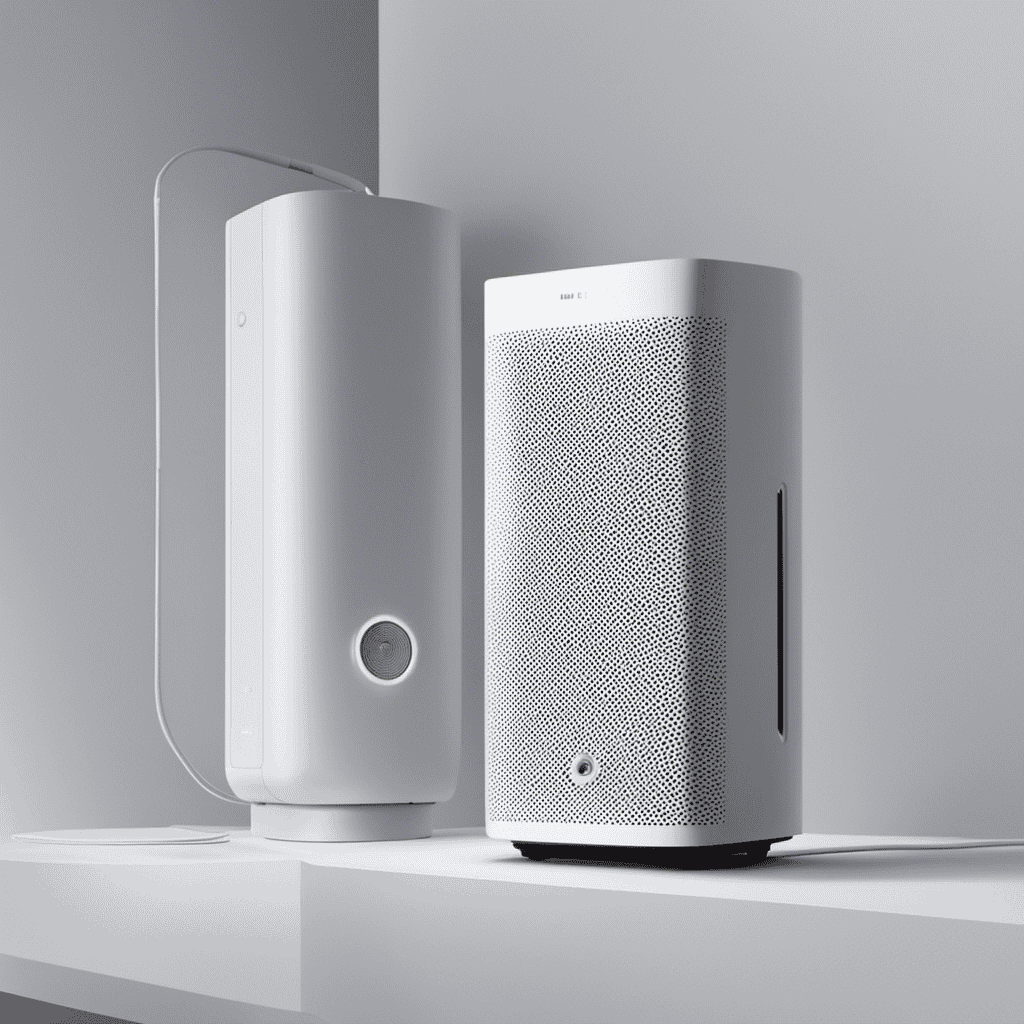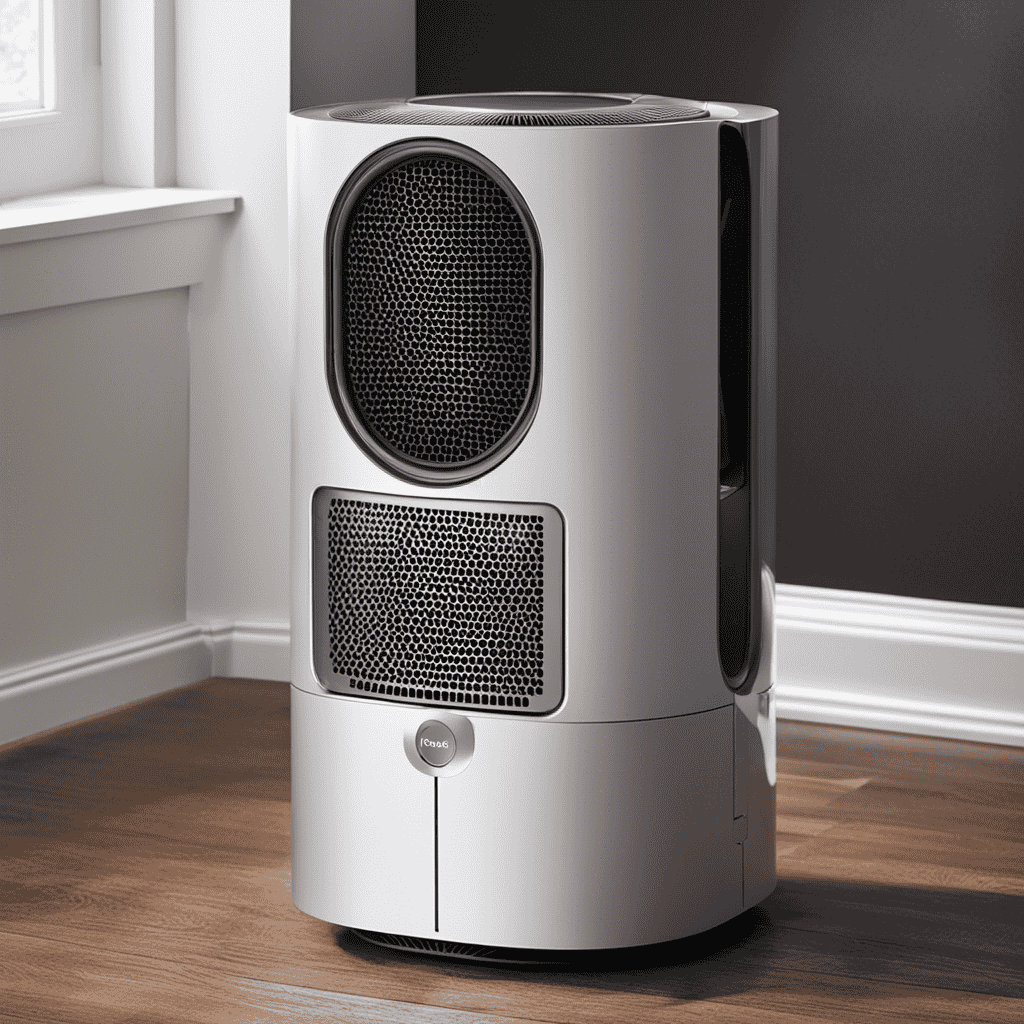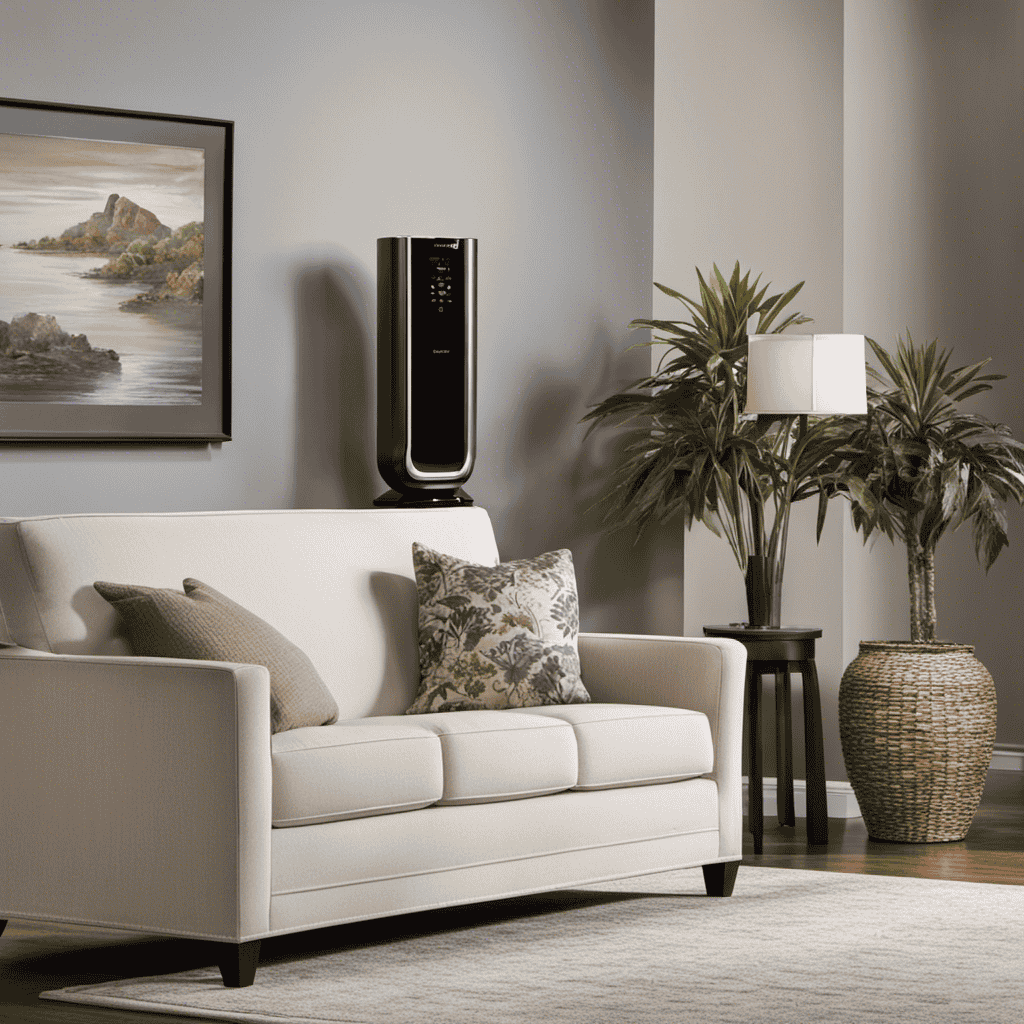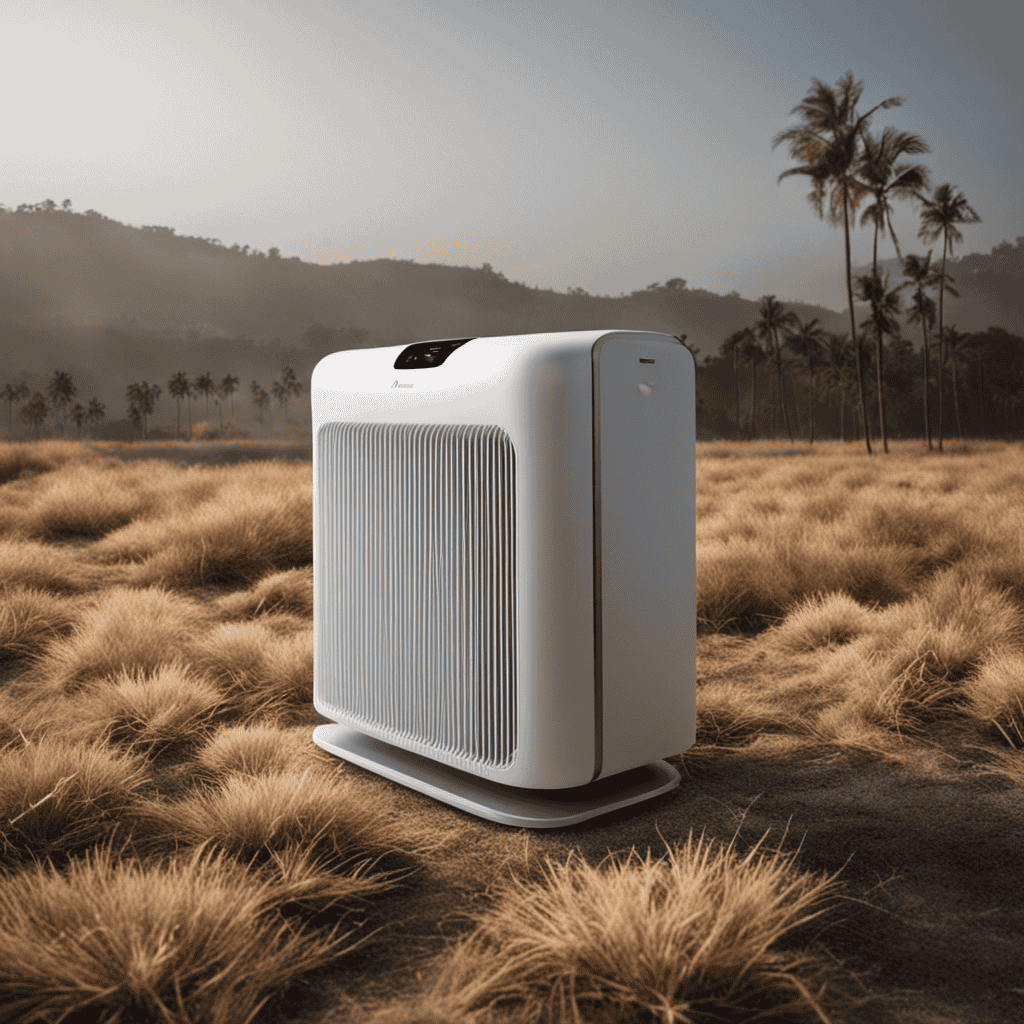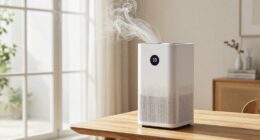Choosing the right odor-killer depends on your needs. Filters like HEPA and activated carbon trap particles and neutralize smells in enclosed spaces, but require regular maintenance. Ionizers emit negative ions that cause particles to settle or stick to surfaces, reducing odors quietly—some produce ozone, so safety matters. Ozone generators neutralize odors effectively but should only be used in unoccupied areas due to health risks. Keep exploring to find the best solution for your space.
Key Takeaways
- Filters like HEPA and activated carbon physically trap or adsorb odor molecules, ideal for continuous, low-maintenance odor control.
- Ionizers emit negative ions to clump airborne particles, reducing odors but may produce ozone, requiring ozone control features.
- Ozone generators neutralize strong odors effectively but pose health risks; they should only be used in unoccupied spaces with proper safety measures.
- Regular maintenance and filter replacement are essential to maintain purifier efficiency and prevent performance decline.
- Combining methods or choosing the right technology depends on odor severity, environment, and safety considerations.

Ever wondered how to effectively eliminate stubborn odors from your home or car? You’re not alone. Odors can be persistent, lingering long after the source has disappeared. That’s where air purification comes into play, offering a range of solutions for odor control. Understanding the different types of odor-killers—filters, ionizers, and ozone generators—can help you choose the best method to keep your environment fresh.
Filters are often the first thing that comes to mind. They work by physically trapping odor-causing particles as air passes through them. HEPA filters are excellent for capturing airborne particles like pet dander, pollen, and mold spores, which can contribute to bad smells. Activated carbon filters take odor control a step further by adsorbing airborne molecules that cause smells, such as smoke, cooking fumes, or pet odors. These filters are especially effective in enclosed spaces because they neutralize smells rather than just mask them. Regularly replacing or maintaining these filters is essential for ongoing air purification and odor control, ensuring they don’t become clogged and lose efficiency. Proper filter maintenance is vital to sustain their effectiveness over time.
Ionizers are another popular option. They work by emitting negatively charged ions, which attach to airborne particles, including odor molecules. This process causes particles to clump together and fall out of the air or stick to nearby surfaces, effectively reducing odors in the environment. Ionizers are quiet and low-maintenance, making them ideal for continuous air purification. However, they can produce ozone as a byproduct, which can be harmful in high concentrations. That’s why choosing a high-quality ionizer with ozone control features is important if you want to avoid potential health risks.
Ozone generators are a more aggressive form of odor control. They produce ozone—an unstable molecule that can react with odor-causing compounds and neutralize them. Ozone is very effective at eradicating strong odors like smoke damage or mold. But, because ozone can irritate your respiratory system and cause other health issues, these generators should only be used in unoccupied spaces and with proper safety precautions. Once the treatment is complete, it’s important to ventilate the area thoroughly before re-entering.
Frequently Asked Questions
Are Odor-Killers Safe for Pets and Children?
You’re right to take pet safety and chemical concerns when choosing odor-killers. Many products can be safe if they’re non-toxic and specifically designed for homes with pets and children. Always read labels carefully, avoid those with strong chemicals or ozone generators, and opt for natural or filter-based options. By doing so, you minimize health risks and ensure a safe environment for your loved ones and furry friends.
How Long Do Filter Replacements Typically Last?
You’re probably wondering about filter lifespan and the replacement schedule. Typically, filters last between 3 to 6 months, but it depends on usage and air quality. Check your device’s manual or indicator lights for guidance. Regular replacements guarantee your odor-killer stays effective. To keep your air clean and fresh, set a reminder to replace filters on time, usually every few months, based on your specific appliance.
Can Ionizers Produce Harmful Ozone Levels?
Think of ionizers as double-edged swords—you get cleaner air, but they can produce ozone, which is like an invisible cloud with potential ozone health risks. While many models are designed for ionizer safety, some can emit harmful ozone levels if not properly regulated. Always check the device’s specifications and guarantee it meets safety standards, so you can enjoy fresh air without risking your health.
Which Odor-Killer Method Is Most Energy-Efficient?
When choosing an odor-killer method, you want the most energy-efficient option. Filters, especially activated carbon ones, tend to have lower energy consumption because they operate passively without needing power. Ionizers are more energy-efficient than ozone generators, but their device efficiency varies. Ozone generators consume more energy and produce ozone, which can be harmful. Overall, filters usually offer the best balance of energy use and effectiveness for odor control.
Do These Devices Eliminate Odors Permanently?
You wonder if these devices eliminate odors permanently. Typically, they don’t, because odors are caused by ongoing chemical reactions in the air or on surfaces. Devices like filters, ionizers, and ozone generators may temporarily mask or neutralize smells, but if you don’t perform regular device maintenance, their effectiveness drops. To truly reduce odors long-term, you need consistent cleaning and proper upkeep of your odor-killer devices.
Conclusion
Think of choosing an odor-killer like picking a knight for a quest. Filters are your trusty shield, blocking odors at the gate. Ionizers act like magic wands, transforming smells into harmless particles. Ozone generators are powerful dragons, but they require caution. Know your enemy and your tools, and you’ll conquer even the toughest odors. With the right weapon, you’ll keep your space fresh and victorious, no matter the battle.
